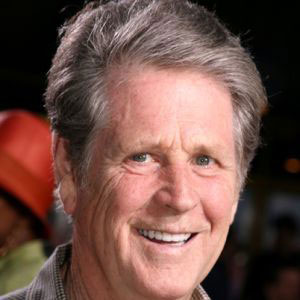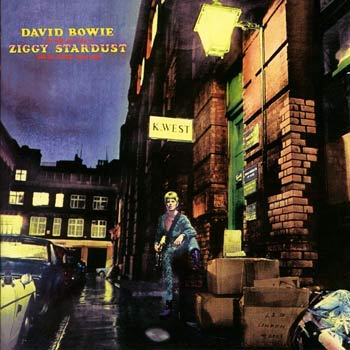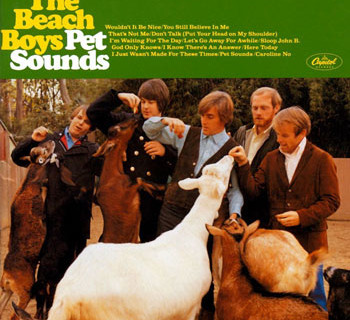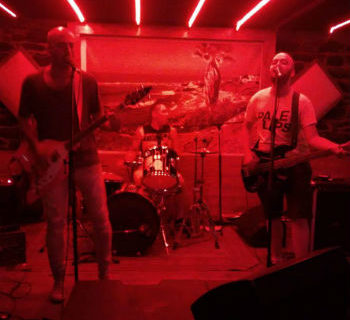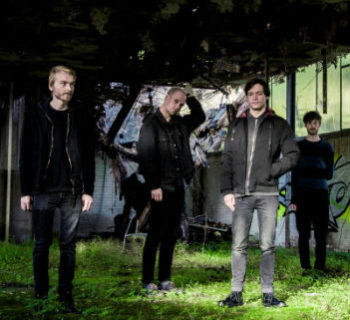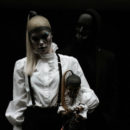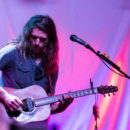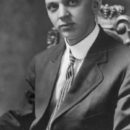“Here’s one now with no voices—just instruments.” Beach Boys founder and musical genius, Brian Wilson explains to the Flynn Theater to soft giggles from the crowd.
It’s not so much the obviousness of the observation that nervously tickles the crowd, but Wilson’s odd, stilted manner of speaking that reveals the decades of abuse, mental illness, and drug problems. It’s the same when he twice asks us to begin a few rounds of “Row, Row, Row Your Boat” and then abruptly cuts it off with a sweep of the hand and “OK, that’s enough.”
But who cares? This is Brian fucking Wilson. For most of those attending, that’s enough.
Indeed, the man’s stature and legend has only grown in the 50 years since the release of Pet Sounds, one of the seminal achievements of 20th century music. Although a recent convert thanks to the genius of the album and the man, I was nonetheless as rapt as the many silver-haired contemporaries filling the seats of the gorgeous Art Deco theater opened in 1930.
Had Wilson and the 11-piece band that included fellow Beach Boy Al Jardine only performed the 13-song, 36-minute album with a few encores, we would have left happy. However, the show lasted much longer, delaying Pet Sounds until set two, and filling the first with about a dozen songs from the Beach Boys catalogue, opening with “Our Prayer” and “Heroes and Villains” from Smile and following with a string of classic singles like “California Girls,” “I Get Around,” “Little Deuce Coupe,” “Little Honda,” “Surfer Girl,” and “Don’t Worry Baby.” Guitarist Blondie Chaplin; whose played with everyone from the Rolling Stones and Joe Walsh, the Band, and Bonnie Raitt; rounded out the set with the lesser known ‘70s Beach Boy tracks “California Saga: California,” “Wild Honey,” and Sail on Sailor,” (during which Wilson abruptly got up and shambled Herman Munster-style off stage, queueing the silver hairs to head to the bathroom).
Although 74 years old and showing the toll of his tumultuous life, Wilson clearly still knows how to choose the band, who did most of the heavy lifting, leaving Wilson to play and sing (or not play and sing) when it suited him, at times turning him into a spectator. Of particular note was Matt Jardine, who inherited the beautiful, yearning falsetto from his father, Al, but he was just one component of the wall of sound Wilson so adores—flute, clarinet, harmonica, organ, vibraphone, theremin, sax, and more—and nearly as many voices to match. Wilson’s weakness on vocals is clear for all to see, but insignificant against the palpable love of the crowd.
The first standing ovations came after the next two songs, “Sloop John B,” led by Al Jardine and after “God Only Knows,” introduced by Wilson as the greatest song ever written, according to Paul McCartney.
And with the dancing harp-like notes of “Wouldn’t it be Nice” (actually a de-tuned 12-string guitar on the album) to open set two, any diminishment is immediately forgotten. All that remains is the music itself, washing in waves over the crowd in rhythm with California surf and the innocence of first love—sometimes requited, sometimes not. It pressed on through “You Still Believe in Me,” “That’s Not Me,” and my personal favorite “Don’t Talk (Put Your Head on My Shoulder.” Before “Let’s Go Away for Awhile,” Wilson reminded the audience it was an instrumental, so no singing.
The first standing ovations came after the next two songs, “Sloop John B,” led by Al Jardine (whose voice seems little changed since the ‘60s) and after “God Only Knows,” introduced by Wilson as the greatest song ever written, according to Paul McCartney. Almost in respect to the song, Wilson made a bit more effort to sing it but the angelic weave of vocal harmonies that close the song brought the crowd, one and all, to their feet again. With “I Just Wasn’t Made for These Times,” the applause was exchanged for an audible “awwww” sweeping through the crowd. The next time the crowd leapt to their feet was to dance on the set closing “Good Vibrations.”
We remained standing for the encore, itself almost as long as a full set, with six more classics, running through “Barbara Ann,” “Help me Rhonda,” “Fun, Fun, Fun,” and “Surfin’ USA” before finishing with the always poignant “Love and Mercy,” made even more so by Wilson swapping the line “There’s a lot of people out there hurtin’…” with “There’s a lot of people getting shot…”
The social critique clearly lingered little in the minds of those leaving the show with big smiles, myself included. Yes, I could now tick off Brian Wilson from the list of legends to see before they croak, but the real star was the music, which sent out some much needed good vibrations into the world.


